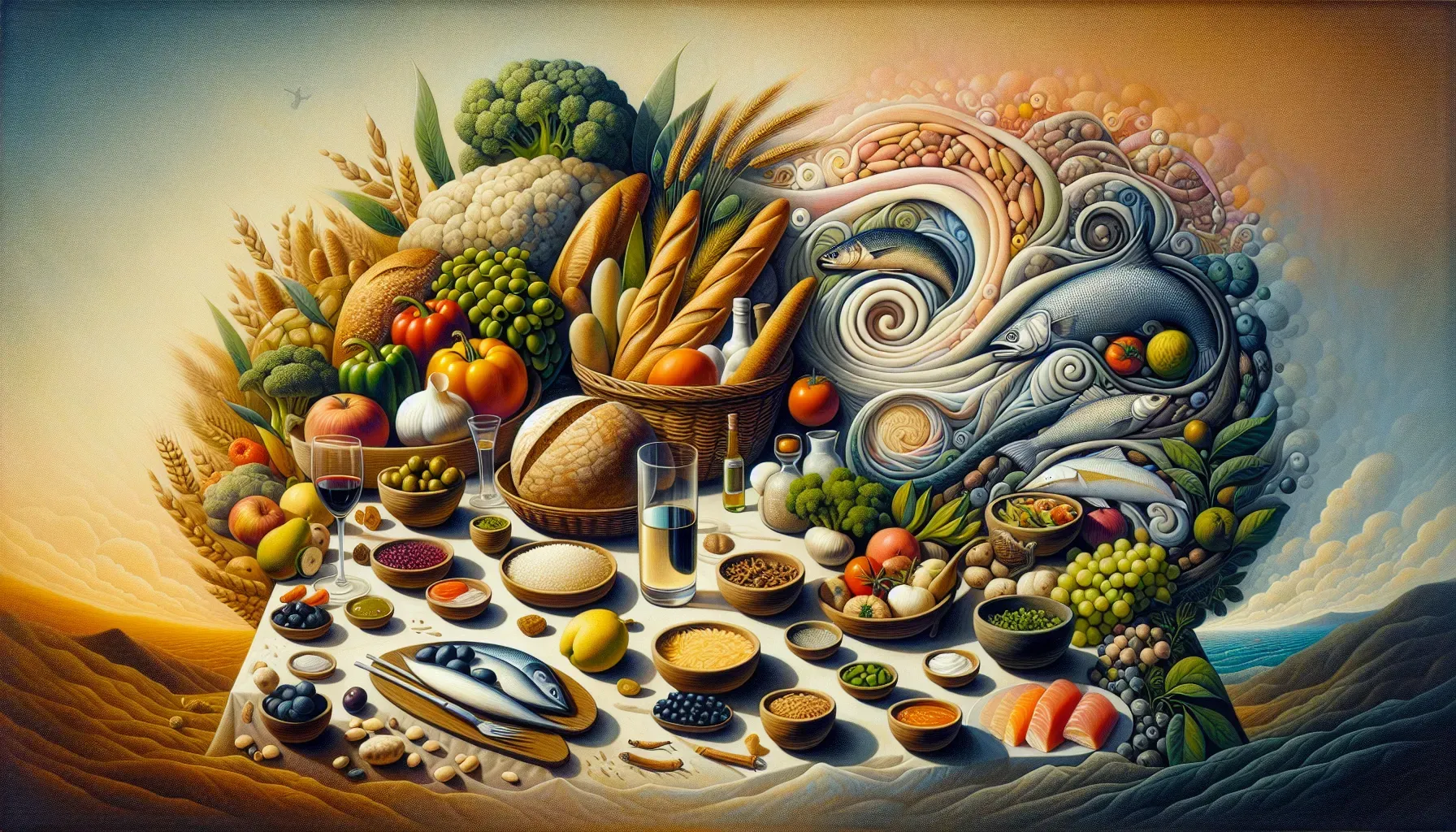Global Nutrition Habits and Philosophies: A Cross-Cultural Analysis

In today's interconnected world, the diversity of global nutrition habits and philosophies presents a rich tapestry of traditional and modern dietary practices. Each culture offers unique insights into nourishing the body and sustaining overall wellness. Let's embark on a journey to explore the nutritional traditions of diverse regions, delving into the Mediterranean diet, Japanese cuisine for longevity, plant-based diets in the Americas, Nordic food traditions, and the African culinary heritage.
The Mediterranean diet, emblematic of the coastal regions bordering the Mediterranean Sea, is renowned for its health-promoting properties. Embracing an abundance of fruits, vegetables, whole grains, legumes, and healthy fats such as olive oil and nuts, this dietary pattern has garnered attention for its potential to reduce the risk of chronic diseases. Seafood consumption in moderation further enhances its nutritional profile by providing essential omega-3 fatty acids.
Mediterranean Diet: Secrets to Southern European Health
Moreover, the inclusion of moderate amounts of dairy products and red wine as well as limited intake of red meat underscores the balanced nature of this diet. The emphasis on fresh, seasonal ingredients not only contributes to physical well-being but also fosters a deep connection with local agricultural practices and culinary heritage.
Japanese cuisine, particularly as observed in Okinawa - known for its high population of centenarians - offers valuable insights into promoting longevity through diet. The traditional Okinawan diet is characterized by an abundance of nutrient-dense foods such as sweet potatoes, seaweed, tofu, and bitter melon. These elements, combined with modest portions of fish and lean meats, create a nutrient-rich eating pattern conducive to overall health.
Japanese Cuisine for Longevity: Nutritional Practices in Okinawa
The culture's emphasis on mindful eating and portion control further contributes to its reputation for fostering wellness. Additionally, green tea consumption, integral to Japanese dietary customs, is recognized for its antioxidant properties and potential health benefits.
Plant-based diets have gained widespread popularity in the Americas for their dual impact on personal health and environmental sustainability. Embracing a spectrum of dietary preferences ranging from vegetarianism to veganism, individuals adopting plant-based diets prioritize whole plant foods while limiting or eschewing animal products.
By incorporating a variety of fruits, vegetables, legumes, whole grains, nuts, and seeds into their meals, adherents to these dietary philosophies aim to optimize their nutrient intake while minimizing their environmental footprint. This nutritional approach encourages creativity in cooking and invites exploration of diverse cultural cuisines adapted to plant-based principles.
Related Article: 10 Easy Ways to Incorporate Wellness into Your Busy Schedule
Plant-Based Diets in the Americas: Health and Sustainability
Nordic food traditions exemplify a harmonious relationship between culinary heritage and sustainable nourishment. The dietary patterns prevalent in Scandinavia emphasize locally sourced seafood such as herring and salmon alongside hearty whole grains like rye and oats. Moreover, root vegetables like potatoes and carrots are integral components of Nordic cuisine.
The integration of foraged foods like wild berries and mushrooms further enriches the nutritional diversity of Nordic diets. Notably, the "New Nordic" culinary movement places emphasis on utilizing seasonal produce from local purveyors while prioritizing organic and ethically sourced ingredients.
Nordic Food Traditions: Sustainable Eating in Scandinavia
The rich tapestry of African culinary heritage reflects an abundance of regional flavors and diverse ingredients that contribute to holistic well-being. From the vibrant spice blends of North Africa to the staple grains like sorghum and millet prevalent in sub-Saharan Africa, each region boasts distinct culinary traditions deeply rooted in indigenous agricultural practices.
Furthermore, the reverence for communal dining experiences underscores the social significance of mealtime within African cultures. The prevalence of hearty stews brimming with nutrient-dense vegetables and lean proteins typifies many traditional dishes across the continent.
In conclusion, a cross-cultural analysis of global nutrition habits reveals a mosaic of varied yet interconnected dietary philosophies that underscore the profound relationship between food and overall wellness. As we celebrate the diversity of culinary traditions worldwide, it becomes evident that each culture offers invaluable insights into nourishing both the body and the spirit.
Related Article: Unwind Your Mind: Mindfulness Techniques for Managing Daily Stress
African Culinary Heritage: Wellness Through Local Foods
This article serves as a comprehensive exploration of global nutrition habits and philosophies within the "Health and Wellness" domain. By embracing the distinctive dietary practices outlined within this article, individuals can embark on enriching culinary journeys that prioritize holistic well-being while honoring cultural heritage.
Frequently Asked Questions
The Mediterranean diet emphasizes fruits, vegetables, whole grains, legumes, and healthy fats like olive oil and nuts. It includes moderate seafood consumption and limited red meat, promoting overall health and reducing chronic disease risk through balanced nutrition.
Japanese cuisine, particularly in Okinawa, promotes longevity through nutrient-dense foods like sweet potatoes, seaweed, and tofu. Mindful eating practices and portion control, along with green tea's antioxidant benefits, further enhance overall wellness in this dietary tradition.
Plant-based diets are popular in the Americas for their health benefits and environmental sustainability. By prioritizing whole plant foods and minimizing animal products, individuals can optimize nutrient intake while reducing their ecological footprint, fostering creativity in cooking.
Check Out These Related Articles

Common Mistakes in Starting a Wellness Journey

Cultural Perspectives on Holistic Healing Practices

Overcoming Lifes Hurdles: Extraordinary Underdog Success Stories in Health and Wellness
